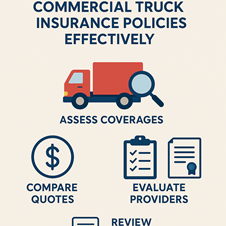How to File a Claim for Car Insurance

We all know that accidents can happen when we least expect them. Whether it’s a minor fender bender or a more serious collision, knowing how to file a car insurance claim can save you a lot of stress and hassle. Today, we’re breaking down the steps to make the claims process as smooth as possible. Let’s dive in!
1. Stay Calm and Assess the Situation
First things first—take a deep breath! Accidents can be overwhelming, but staying calm is crucial. After ensuring everyone is safe, assess the situation. If it’s safe to do so, move your vehicle to the side of the road to avoid further accidents.
Make sure to check for injuries and call emergency services if needed. Your health and safety come first!
2. Gather Information
Once everyone is safe, it’s time to gather information. Here’s what you should collect:
- Contact Information: Get the names, phone numbers, and addresses of all parties involved in the accident.
- Insurance Details: Exchange insurance information with the other driver(s), including policy numbers and company names.
- Witnesses: If there are any witnesses, ask for their contact information as well.
- Photos: Take clear photos of the accident scene, vehicle damage, and any relevant road signs or signals. These can be invaluable when filing your claim.
3. Notify Your Insurance Company
Now that you have all the necessary information, it’s time to contact your insurance company. Most insurers have a dedicated claims department that you can reach out to via phone or their website.
When you call, be prepared to provide:
- Your policy number
- Details of the accident (date, time, location)
- A description of what happened
- The information you gathered from the other party
4. Understand Your Coverage
Before filing your claim, it’s essential to understand your coverage. Different policies have different terms, so take a moment to review your policy documents.
Ask yourself:
- Do I have collision coverage?
- What is my deductible?
- Am I covered for rental car expenses while my vehicle is being repaired?
- Understanding your coverage will help you know what to expect during the claims process.
5. File the Claim
Once you’ve notified your insurance company and provided all necessary information, it’s time to file the claim. Many insurers allow you to file claims online, which can be a quick and convenient option.
Make sure to keep a record of your claim number and any correspondence with your insurer. This will help you track the progress of your claim and provide a reference if needed.
6. Follow Up
After filing your claim, don’t forget to follow up! Insurance companies can be busy, and it’s essential to ensure your claim is being processed.
If you haven’t heard back within a reasonable time frame, give them a call to check on the status. Be polite but persistent—your claim is important!
7. Get Your Vehicle Repaired
Once your claim is approved, you can start the process of getting your vehicle repaired. Your insurance company may have a list of preferred repair shops, but you can choose one that you trust.
Make sure to keep all receipts and documentation related to the repairs, as you may need to submit these for reimbursement.
8. Know Your Rights
Lastly, it’s essential to know your rights as a policyholder. If you feel that your claim is being unfairly denied or delayed, don’t hesitate to ask for clarification or escalate the issue.
You can also reach out to your state’s insurance department for assistance if needed.
Drive with Confidence
Filing a car insurance claim doesn’t have to be a daunting process. By staying calm, gathering the right information, and following these steps, you can navigate the claims process with ease.
If you’re looking for reliable insurance services or need help finding the right coverage for your needs, Sulekha Insurance Services is here to help! We connect you with top-rated insurance providers in your area, ensuring you get the best coverage at competitive rates.
Ready to drive with confidence? Visit Sulekha today and find the perfect insurance solution for you!
Searching for Insurance Services? Let’s make your search simple with professionals!
Take your Insurance Services to the next level with Sulekha. Boost your online visibility, connect with more clients, and grow effortlessly!
Blogs Related to Insurance Services

Why Umbrella Insurance Is the Ideal Extra Shield You Need
What in the World Is Umbrella Insurance, Anyway? Ever wished you had a “plan B” for life’s curveballs? That’s where umbrella insurance steps in—a policy that acts like a safety net when your other coverages reach their limit.

Mortgage Insurance: Your Safety Net When Homeownership Gets Risky
What Is Mortgage Insurance and Why Does It Matter? Mortgage insurance is a financial buffer that protects lenders if a borrower defaults on their home loan. But for homeowners, it’s more than just a lender’s safety net — it’s a gateway to homeowner

Life Insurance: More Than a Policy, it is Peace of Mind
When you think of life insurance, chances are you picture endless paperwork, confusing jargon, and sales calls that never end. But let’s pause for a second. Life insurance isn’t just a policy—it’s a promise. A promise that your loved ones will be pro

Insurance Isn’t Just a Policy—It’s Peace of Mind. Here’s Why You Need It Now
We get it—insurance sounds like paperwork, premiums, and fine print. But in reality? It’s your safety net. Your backup plan. You're a quiet superhero who shows up when life throws curveballs. Whether it’s a fender bender, a sudden illness, or a h

How to Compare Commercial Truck Insurance Policies Effectively
In the fast-paced world of commercial trucking, having the right insurance isn't just a legal requirement—it's your financial safety net when the unexpected happens. But with countless providers offering seemingly similar policies, how do you cut thr

How to File a Claim for Car Insurance
We all know that accidents can happen when we least expect them. Whether it’s a minor fender bender or a more serious collision, knowing how to file a car insurance claim can save you a lot of stress and hassle. Today, we’re breaking down the steps t




